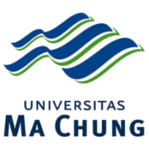JUNIOR HIGH SCHOOL PERCEPTION OF COOPERATIVE GROUP WORK
Abstract
Cooperative learning is not only about studying and sitting together, but it is more about structuring the group work. Structuring group work includes guidance of step by step to do the assignment. In the assessment process of group work, teachers tend to assess students individually, which is disassociated. To bridge the gap, representativeness assessment is introduced as a current insight. This study aimed to identify student’s perception toward cooperative group work strategies and representative assessment. In this research, data were collected through questionnaires from a population of students. The result of the study showed that the respondents showed high percentage of perception on both cooperative group work strategies and representative assessment.
References
Brown, H. D. (2001). Teaching by principles: An interactive approach to language pedagogy. Pearson Education.
Campbell, J., & Li, M. (2006). Asian students' perception of group work & group assignments in a New Zealand tertiary institution. Edith Cowan University Research Online.
Hodges, L. C. (2017). Ten research-based steps for effective group work. Idea Paper.
Holzman, L. (2009). Vygotsky at work and play. Routledge.
Lie, A. (2002). Cooperative learning: Mempratikkan cooperative learning di ruang-ruang kelas. Grasindo.
Nhu, N. L. (2012). Upper primary students' perceptions of small group learning in learning Vietnamese language. Master Education Thesis. Victoria University of Wellington.
Pramastiwi, P. (2014). High school learners' perception of their STAD learning experience in studying conditional sentences: Do gender and past achievement matter? Unpublished S-1 Thesis. English Department, Widya Mandala Catholic University Surabaya.
Santrock, J. W. (2009). Life-span development (Twelfth ed.). McGraw-Hill Higher Education.
Sparks, S. D. (2017). Children must be taught to Collaborate, studies say. Retrieved February 28, 2018, from Education Week: https://www.edweek.org/ew/articles/2017/05/17/children-must-be-taught-to-collaborate-studies.html
Tamah, S. M. (2011). Student interaction in the implementation of the Jigsaw technique in language teaching. Published disertation. the Netherlands: Gronigen University.
Tamah, S. M. (2013). Teacher's enforcing positive interdependence. Magister Scientiae, 1(1), 74-84.
Tamah, S. M. (2014). Assessment in a Cooperative learning class. PASAA, 46, 199-213.
Tamah, S. M. (2015). Innovation in group work presentation: A challenge responded. Proceedings of the 24th MELTA International Conference, 380-393.
Tamah, S. M. (2015). Revitalizing formative test: A model of interactive test adminstration. The Proceedings of the 2nd National Conference on Language and Language Teaching, 139-145.
Tamah, S. M. (2017). Pernak-pernik kerja kelompok berbasis pembelajaran Kooperative [translation: The nuts and bolts of Cooperative learning oriented group work]. Universitas Widya Mandala.
Tamah, S. M. & Prijambodo, L. (2014). Metode asesmen berbasis pembelajaran Kooperatif [translation: Cooperative learning-based assessment. A research report. Retrieved from http://repository.wima.ac.id/4496/
Tamah, S. M., & Prijambodo, V. L. (2015). Model asesmen pembelajaran Kooperatif: Strategi menjawab tantangan [translation: Models of Cooperative learning assessment: Strategies to respond to challenges]. Surabaya: Revka Petra Media.
Tamah, S.M. & Wirjawan, J. V. D. (2019). Assessment-oriented formative test. The International Journal of Innovation and Learning, 26(1), 66- 81
Open Access Policy
This is an open access journal which means that all content is freely available without charge to the users or their institution. Users are allowed to read, download, copy, distribute, print, search, or link to the full texts of the articles, or use them for any other lawful purpose, without asking prior permission from the publisher or the author. This is in accordance with the BOAI definition of open access.
![]() This work is licensed under a Creative Commons Attribution-ShareAlike 4.0 International License.
This work is licensed under a Creative Commons Attribution-ShareAlike 4.0 International License.

















